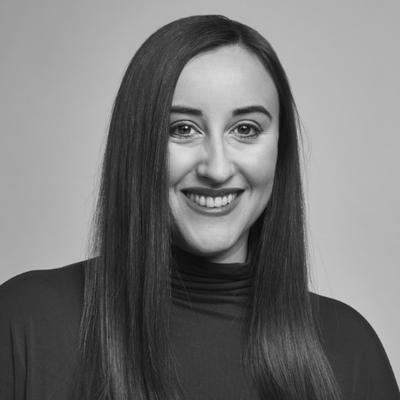Haley Cullingham

Haley Cullingham, School of Journalism ‘12, is a Senior Editor at Penguin Random House Canada (PRHC).
What did you first see yourself doing when you enrolled at the School of Journalism and how did that change during your time at j-school?
So when I first enrolled, I wanted to be a music writer. I wanted to do long-form music journalism. It shifted when I took a feature writing course. I fell in love with it, and that was when the idea of working as an editor at a magazine started to appeal to me more than working as a writer.
How did you arrive at your current position?
So while I was at TMU, I worked as an editor at a blog and then when I graduated, I did freelancing, freelance fact-checking and freelance writing, as well as editing and continuing to work for the blog.
Then I got hired as the associate editor of Maisonneuve Magazine in Montreal, went to Montreal, and did that job for a year. I was promoted to editor-in-chief of Maisonneuve, and was the EIC of Maisonneuve for three years. I also freelanced on the side while doing that job and then got hired at Hazlitt, a digital literary magazine published by Penguin Random House, Canada.
I had a crazy six months where I was a senior editor at Hazlitt and the editor-in-chief of Maisonneuve. Maisonneuve is quite a small, independent magazine and it takes a long time to find a new editor, so I did both, and everyone was very accommodating of that, which is supportive.
In Sept. 2015, I came on board full-time at Penguin Random House, Canada, working on Hazlitt. A few years into my time at PRHC, I was mentored by my managers to start moving into book editing, and that's when I started doing book editing for McClelland & Stewart. We also launched Strange Light, which is a new experimental literary imprint that we started in, I think, 2018. So then I began editing for McClelland and Stewart and Strange Light, as well as continuing to edit for Hazlitt.
What does a typical workday look like for you?
It's interesting because depending on how many books I'm working on and what stage of production they're at, my days look very different. Sometimes I'm doing a lot of line-by-line editing, I'm super in the weeds with a book and I'm going back and forth with the author. My favourite days are when it's like super in the weeds editing, I love that.
There's also a lot of going out and trying to meet new authors and find new projects. It's really important to me to do everything I can to try and bring people into Penguin Random House Canada who maybe don't feel they have a natural path to submitting (proposals) to the company. I try to do the best I can to meet people in different ways.
There's a lot of project management production stuff that comes with being an editor. We're lucky we have an amazing managing editor who supports us from McClelland & Stewart and Strange Light. So working in collaboration with her, making sure that the book is moving through each stage. It has to move through a lot of collaboration with our design department, our production department and our colleagues who are in marketing and publicity.
In the magazine, it's a little less outreach and a little more we get pitched. I read through pitches, talk with the editor-in-chief then work with our social media editor. It's just keeping everything ticking along, but my favourite days are my big editing days.
Can you share some of your biggest accomplishments?
I'd say one of my biggest accomplishments, one of the ones that meant the most, was when Maisonneuve won Magazine of the Year at the National Magazine Awards; it was during a period when Daniel Viola and I had both been working as editor-in-chief. That meant a lot because everyone at Maisonneuve works so hard- the publisher, the art director, everyone - it's such a labour of love for everyone, especially Jennifer Varkonyi, the publisher; she just puts everything into that magazine. So it was wonderful to be recognized that way.
I think the second one is when the first book I edited was published, which was by Eternity Martis, MJ ‘16. We met when I came into her Review of Journalism class to help with some heds and deks, and publishing her book meant a lot to me.
Where do you see yourself and your work headed in the future?
Honestly, I used to be a five-10 year plan person. Right now, I've enjoyed focusing on the work I'm doing right now. I feel lucky because I have this job where I get to edit journalism and I get to edit books. On the book side, it is still fairly new for me, I've only been doing it for three years. So I feel like I'm learning a lot. I am in a place where I just want to keep doing this for a while and get better at it. I think there's a lot we've been talking about doing some stuff with Hazlitt and continuing to grow the magazine. So that's exciting for me. And continuing to acquire books, the nice thing about editing is that you're always doing something different that's the best thing. It's always a new story. It's always new people. For someone like me, who can be prone to thinking too much about the future, I'm trying to enjoy what is happening right now.
Grads at Work is a series of profiles of alums. If you know of a notable grad you’d like to see featured, send us an email at office.journalism@torontomu.ca.